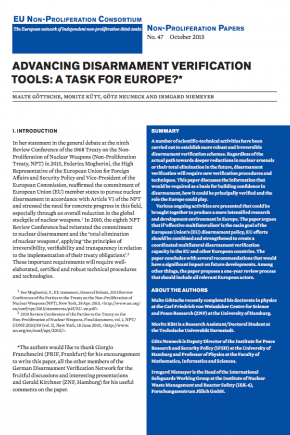Advancing Disarmament Verification Tools: A Task for Europe
A number of scientific-technical activities have been carried out to establish more robust and irreversible disarmament verification schemes. Regardless of the actual path towards deeper reductions in nuclear arsenals or their total elimination in the future, disarmament verification will require new verification procedures and techniques. This paper discusses the information that would be required as a basis for building confidence in disarmament, how it could be principally verified and the role that Europe could play.
Various ongoing activities are presented that could be brought together to produce a more intensified research and development environment in Europe. The paper argues that if ‘effective multilateralism’ is the main goal of the European Union’s (EU) disarmament policy, EU efforts should be combined and strengthened to create a coordinated multilateral disarmament verification capacity in the EU and other European countries. The paper concludes with several recommendations that would have a significant impact on future developments. Among other things, the paper proposes a one-year review process that should include all relevant European actors.

